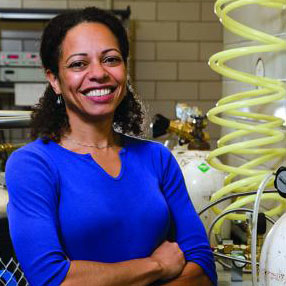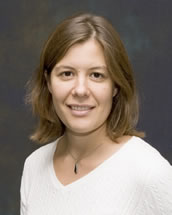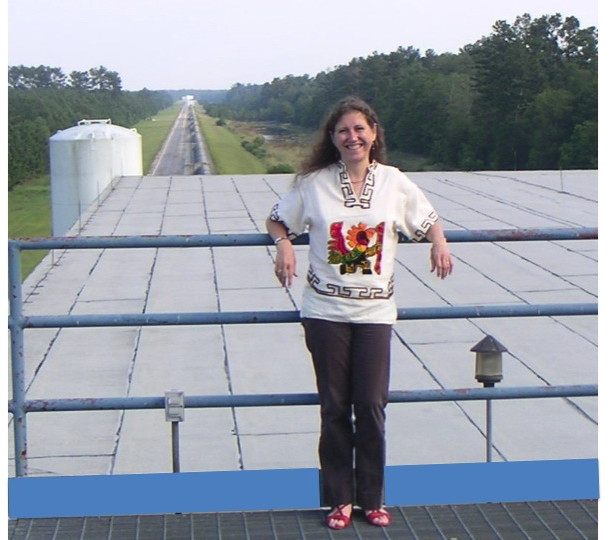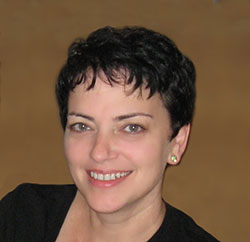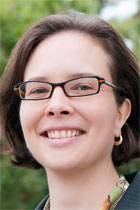Speakers
|
|
Prof. Nadya Mason, University of Illinois Urbana-Champaign Professor Nadya Mason received her bachelor's degree in physics from Harvard University in 1995 and received her doctorate in physics in 2001 from Stanford University, working in the group of Aharon Kapitulnik. Her thesis research was on phase transitions in two-dimensional superconductors. Prior to joining the physics faculty at Illinois, Professor Mason was a Junior Fellow in the Society of Fellows at Harvard University. Professor Mason's research at Illinois focuses on how electrons behave in low-dimensional, correlated materials, where enhanced interactions are expected to give novel results. The research is relevant to a variety of technologies, including quantum communication, information storage, and qubit control in quantum computers. |
|
|
Prof. Sabine Lammers, Indiana University Bloomington B.S., Barnard College May 1997; Ph.D., University of Wisconsin May 2004. I am an experimental particle physicist at Indiana University in Bloomington, IN. My research interests are in Standard Model processes that probe the strong and electroweak forces, and in measurements related to the electroweak symmetry breaking process. My current projects are based on data collected by the ATLAS Experiment at the Large Hadron Collider. Previously, I worked on the DØ Experiment at Fermilab and the ZEUS experiment in Germany. I am particularly interested in collaborating with theorists to improve measurements of Standard Model processes which can constrain systematics on searches for physics beyond the Standard Model. |
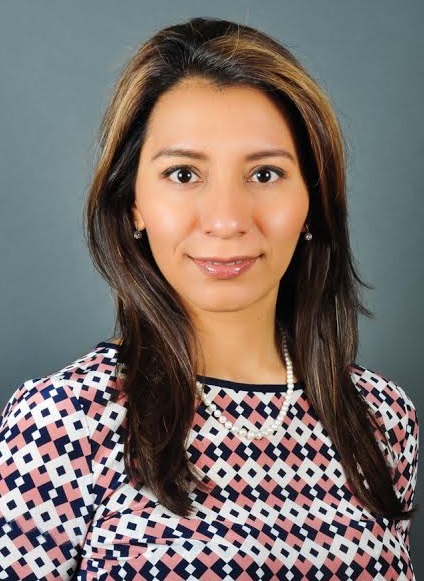 |
Dr. Norma Sosa, IBM Dr. Sosa leads the materials research for phase change memory-- a non-volatile technology -- at IBM's T.J. Watson Research Center in Yorktown Heights, NY. In her role, she is responsible for a wide spectrum of work involved in bringing this technology from lab to product: from materials research to development, and technology transfer under joint partnerships with external clients. She also has experience in a variety of fields including advanced scanning probe, advanced substrates for flexible electronics, atomic layer deposition, and intellectual property. She completed her undergraduate and masters degree at UCLA and received her PhD from the Materials Science and Engineering Department at Northwestern University. |
|
|
Prof. Gabriela Gonzalez, Louisiana State University Ph.D., 1995 - Syracuse University. Prof. González research interest is in the detection of gravitational waves with interferometric detectors, such as the one in the LIGO Livingston Observatory, in Livingston, LA. She has published several papers on the specific predictions of Brownian motion as a limiting sources to the detectors' sensitivity. She was a founding member of the LIGO Scientific Collaboration, and has participated intensely in the commissioning of the LIGO detector at the Livingston Observatory since joining LSU in 2001, in issues related to alignment sensing and control. Her group is very involved in the instrumental characterization and calibration of the data collected in the data-taking Science Runs performed by the LIGO Scientific Collaboration (LSC). From 2000 to 2007, she co-led one of the four data analysis groups in the Collaboration, dedicated to the search of gravitational waves generated by binary systems of compact objects (neutron stars or black holes) in the final inspiraling stage before coalescence. In 2008-2011, she led the LSc detector characterization working group. In 2011, she was elected as the LSC spokesperson. |
|
|
Associate Professor and Director of Women’s, Gender, & Sexuality Studies, Purdue University Professor Boisseau received her PhD in 1996 from SUNY Binghamton, with major fields in U.S. women’s history and African-American women’s history; her MA from Georgetown University (1988); and her BA from Suffolk University (1985). Dr. TJ Boisseau is the new Director of Women’s Studies in the College of Liberal Arts at Purdue University. Professor Boisseau comes to Purdue from the University of Akron where she specialized in U.S. women’s history and women’s Studies. She is the author of several books including White Queen: May French Sheldon and the Imperial Origins of American Feminist Identity(IU Press, 2004) and she edited a critical edition of May French Sheldon’s Sultan to Sultan: Adventures among the Masai and other Tribes. |
 |
Prof. Daniela Bortoletto, University of Oxford Daniela Bortoletto is a professor of experimental particle physics using powerful accelerators for exploring the energy frontier. She is a co-discoverer of the Higgs boson and the top quark. She is currently studying the properties of the Higgs boson and searching for new physics at the LHC. In addition she is playing an important role in the development of instrumentation for particle detection. Daniela received her PhD in Physics from Syracuse University in 1989 and her B.S. cum laude from the University of Pavia (Italy) in 1982. She was the E. M. Purcell distinguished professor of Physics at Purdue University before joining the University of Oxford in 2013. She has received numerous awards including an U.S. NSF Early Career Award and an Alfred P. Sloan Fellowship. She is a Fellow of the American Physical Society and of the American Association for Advancement of Science. Daniela is a sought after lecturer and advisor about particle physics. She has been a member of the U.S. Particle Physics Projects Prioritization Panel (P5), the High Energy Physics Advisory Panel (HEPAP) to the U.S. DOE and NSF, and the Mathematical and Physical Science Advisory Committee (MPSAC) to the NSF. She is currently the chair of the Fermilab Program Advisory Committee. Daniela is passionate about gender issues in physics and increasing female participation in physics and other sciences. |
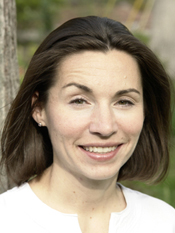 |
Prof. Lucy Flesch, Purdue University PhD, Geophysics, 2002, Stony Brook University; M.S., Mineral Physics, Stony Brook University, 1997; B.S. cum laude, Physics, Beloit College, 1995. I am interested in the kinematics and dynamics of the continental lithosphere, namely the interaction between the lithospheric crust and mantle, deformational driving forces of continental lithosphere, and the development of large plateaus. The modeling performed are all observationally based using geodetic, geologic and seismic data. |
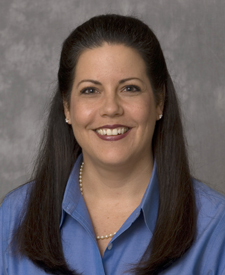 |
Prof. Lynn Bryan, Purdue University Ph.D. Purdue University, 1997, Science Education; M.S. Indiana University, 1992, Secondary Education; B.S. Georgia Institute of Technology, 1986, Chemistry. Professor Bryan's research program and scholarship focus on teacher thinking in the process of learning to teach science. She uses case study and interpretive methods to conduct in-depth, longitudinal studies of teacher thinking (beliefs and knowledge) as it relates to classroom actions. Professor Bryan's scholarship draws on a coordinated cognitive and sociocultural perspective. Specifically, her research may be characterized by the contexts in which her work takes place: (a) instructionally innovative settings involving novel curriculum reform and technology-enhanced environments, and (b) culturally and linguistically diverse settings. |
|
|
Dr. Monica Plisch, American Physical Society PhD in Physics from Cornell University, 2001. Dr. Monica Plisch is Associate Director of Education and Diversity for the American Physical Society (APS). She leads the Physics Teacher Education Coalition (PhysTEC) project, which has a mission to improve the education of future physics teachers. Monica is also engaged in efforts to promote diversity and inclusion in the physics community. Before coming to APS, Monica led nanoscience education initiatives at Cornell University. She completed her doctoral studies in physics at Cornell University. |

